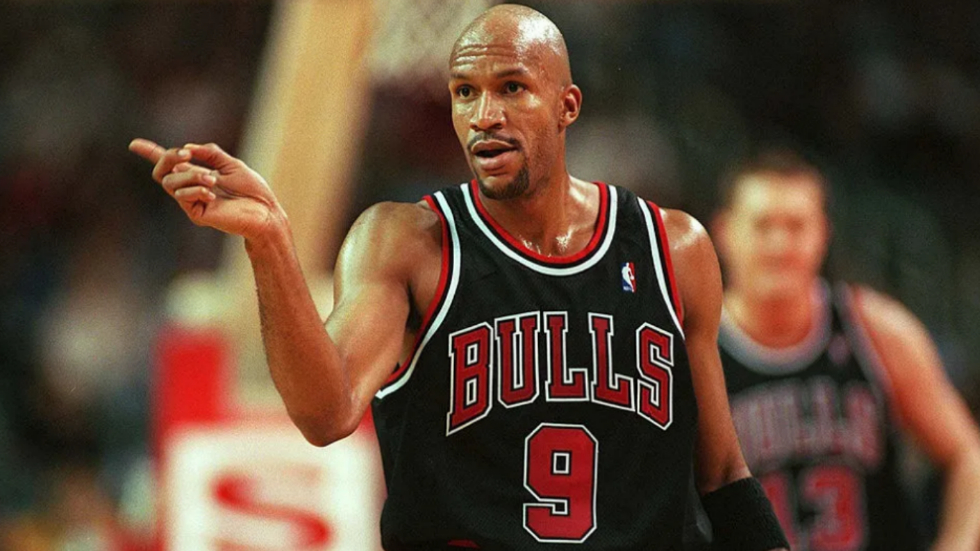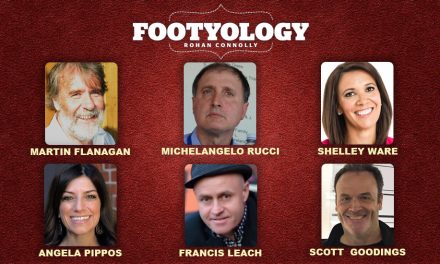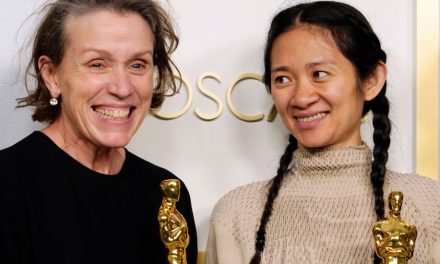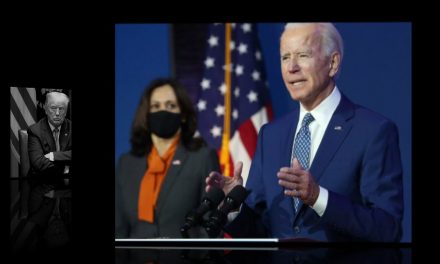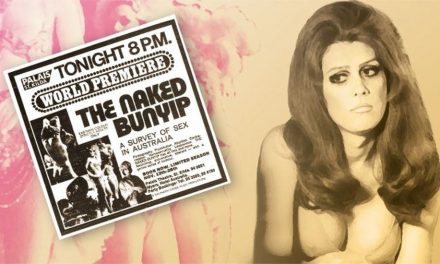It’s often forgotten that Ron Harper (pictured) was an electric scoring guard prior to a devastating knee injury midway through the 1990 season. Photo: Getty Images.
Last week, this writer took a look at an array of potential first-time All-Stars for the 2023 season. That exercise moved thoughts to players who didn’t make an All-Star game throughout their careers, but probably deserved to.
There are plenty of players that have, throughout the NBA’s history, picked up All-Star nods that fans may look back on with a sense of astonishment.
There are those that were good players that enjoyed one outlier season (The Dana Barros division), those who rode on the coattails of famous teammates (traditionally the Bill Bradley/BJ Armstrong division, though Andrew Wiggins made a case to take over naming rights last season), those with consistently strong statistics who were just not as good as the stars in their conference (Bill Cartwright), those who were in the ‘put-me-in-the-All-Star-game-or-I’ll-punch-you-in-the-face’ group (Charles Oakley) and, of course, there is also an array of how-the-shuddering-f*ck-did-they-become-All-Stars, led by the incomparable Jamaal Magloire.
There’s also a raft of players that should have picked up more than a single All-Star nod during their careers: Dale Ellis, Dan Issel, World B Free, etc. As good as those guys were, they might not be as capable as our uncapped players, such is the mix of poor luck and poor circumstance that our players listed below suffered.
This list, whilst taking a cursory glance at overall careers, is about a season, or seasons, that warranted legitimate All-Star consideration. That means that the likes of Arvydas Sabonis won’t be touched on below. The big Lithuanian is a worthy Hall of Famer, but was clearly past his best by the time he made his way to the NBA and was never an All-Star calibre player in the league.
Let’s get onto the list, shall we?
Ron Harper
Most people remember Harper as one of Phil Jackson’s most loyal on-court lieutenants, the defensive-minded guard who stood alongside Michael Jordan and Kobe Bryant on his way to five NBA championships. It’s often forgotten that Harper was an electric scoring guard prior to a devastating knee injury midway through the 1990 season, shortly after he was traded to the cursed Clippers from Cleveland.
Alongside Clyde Drexler, Harper was seen as being one step down from the irrepressible Jordan and better than the likes of Joe Dumars, Reggie Miller, Jeff Malone, Sidney Moncreiff and Hersey Hawkins. His was a star on the rise.
Harper’s game was perhaps the closest facsimile to Jordan. The Ohio native was practically the same size as Jordan, almost as fast and almost as explosive a leaper. He wasn’t quite the shooter or defender that MJ was and was nowhere near as creative, but was a fine player all the same.
Best All-Star case: 1990
Harper started the season on fire but was traded just seven games in. He continued his form for the Clips, averaging 23 points, over five boards and five assists, with 2.4 steals and 1.1 blocks thrown in for good measure.
Whilst his injury would ultimately have prevented him from appearing in the game itself, should he have made it, it’s remarkable that Harper wasn’t even in the top 10 in guard voting for the conference.
Lamar Odom
Imagine if a player with Odom’s skill set was coming out of college in today’s game. He’d just about be a consensus No.1 pick, right? Back in 1999, teams knew Odom was a talent (he was selected fourth overall) but had no real idea as to how to utilise his talents in a league where ‘positionless’ basketball was still well over a decade away.
Odom, though, produced immediately with 17/8/5 in his sophomore season. His single season in Miami was enough to see him be the centrepiece of a trade package that landed Shaquille O’Neal. As a Laker, Odom continued to produce sparkling results, winning a pair of rings.
His career – and his life – went off the rails late on and that perhaps overshadows Odom’s immense on-court ability. At his peak, he was, statistically at least, comparable with Chris Webber and Kevin Garnett.
Best All-Star case: 2004
Odom only spent a year on South Beach, though it was in Miami where he started to unlock his full potential. Coach Stan Van Gundy played Odom as a de facto point guard, running everything through his 6’10” playmaker, in much the same way as he would with Hedo Turkoglu half a decade later.
Odom put up 17.1 points, 9.7 boards, 4.1 assists and 1.1 steals, taking over the leadership of the team from veteran guard Eddie Jones. Dreams of a long partnership with then-rookie Dwyane Wade were dashed when the Heat went all in, trading for Shaq.
PLEASE HELP US CONTINUE TO THRIVE BY BECOMING AN OFFICIAL FOOTYOLOGY PATRON. JUST CLICK THIS LINK.
Happy Hairston
Harold ‘Happy’ Hairston might be the most anonymous player on this list. Hairston plied his trade in the 60s and 70s on some star-studded Pistons and Lakers line-ups. It’s perhaps because of his more illustrious teammates that Hairston – a genuine double-double machine – never claimed an All-Star berth.
In Detroit, Hairston was the workhorse who made life easier for Dave DeBusschere, Walt Bellamy and Dave Bing. After joining the Lakers in 1970 he played alongside Wilt Chamberlain, Jerry West and Gail Goodrich. Tough to get noticed in those crowds!
Hairston was a tough-as-nails player who thrived in the creases that his more notable teammates created. He was a demonic rebounder who many believe would have averaged 15-plus boards in his prime, if not for the presence of Wilt and Bellamy, hoovering up misses for fun. Steals were not recorded until very late in Hairston’s career, though he was said to pick up well over two steals a game through quick hands and aggressive defence.
Best All-Star case: 1971
A case could be made for 1969, when Hairston put up almost identical stats to the 18 points and 11 rebounds he produced in 1971.
His statistical production and defensive importance make him a tough omission in both years, though 1971 saw a changing of the guard in the Western Conference and was perhaps Hairston’s best chance of earning a call-up.
Damon Stoudamire
‘Mighty Mouse’ was the original Raptor, the fledgling team’s first ever draft pick back in 1995.
Whilst he enjoyed a long NBA career, Stoudamire undoubtedly peaked early on the expansion Raptors, putting up close to 20 points and 10 assists per game in each of his first two seasons.
He was the face of the fun, freewheeling Raptors in those early days, before being traded to the Blazers midway through his third year. There, he unfortunately became one of the faces of the talented but troubled ‘Jailblazers’ era in Portland.
Best All-Star case: 1996
Stoudamire’s Rookie-of-the-Year-winning campaign saw the Arizona product put up 19 points (on impressive 43/40/80 shooting splits), 9.3 assists, four rebounds and 1.4 steals for the Raptors.
Given that level of production and the level of attention that the Raptors were getting as the NBA heavily marketed its push into Canada, it’s a wonder that he missed All-Star selection to Cavs guard Terrell Brandon. Likewise in 1997 Stoudamire should probably have made the All-Star game, again at Brandon’s expense.
Rod Strickland
Before there was Kyrie Irving, there was Kyrie Irving’s Godfather.
Rod Strickland possessed perhaps the best handles in the NBA through the 1990s. He was a wonderful player to watch, his speed and his trickery (mixed with just a hint of nastiness) saw him make fools of defenders all over the league. Strickland was an acrobatic finisher in traffic. Essentially, he was Kyrie without a jump shot.
Strickland spent 17 years in the league, though his true peak was rather short at four, perhaps five, seasons. That peak, though, was impressive. Between the 1994 and 1998 seasons, Strickland averaged 17.9 points, 9.4 assists and 1.8 steals, numbers only bettered by the great John Stockton.
Yet, when it came to All-Star appearances, Strickland was continually overlooked for the likes of Brandon and the Hardaways, Tim and Penny. Admittedly, they’re wonderful players, yet it’s undoubted that Strickland never received his due from fans or coaches. If he was born 10 years later, he’d probably be a five-time All-Star.
Best All-Star case: 1998
As the lead guard on the rebranded Washington Wizards, Strickland put up 17.8 points, a league-leading 10.5 assists, 5.3 boards and 1.7 steals – good enough to earn Strickland All-NBA recognition for the only time in his career.
He was beaten for All-Star reserve spots that year by Reggie Miller (fair enough), Steve Smith (a close call, but fine) and Penny Hardaway (ugh … 16 points, four boards and three assists in just 16 games).
Missing to Hardaway in 1998 was a genuine travesty.
Notable players who didn’t make the cut (again): Derek Harper, Josh Smith, Marcus Camby, Richard Jefferson, Cedric Maxwell, John Williamson, Michael Cooper, Phil Ford, Eddie Johnson, Jason Richardson.
To find more of Jarrod Prosser’s content visit vendettasportsmedia.com

